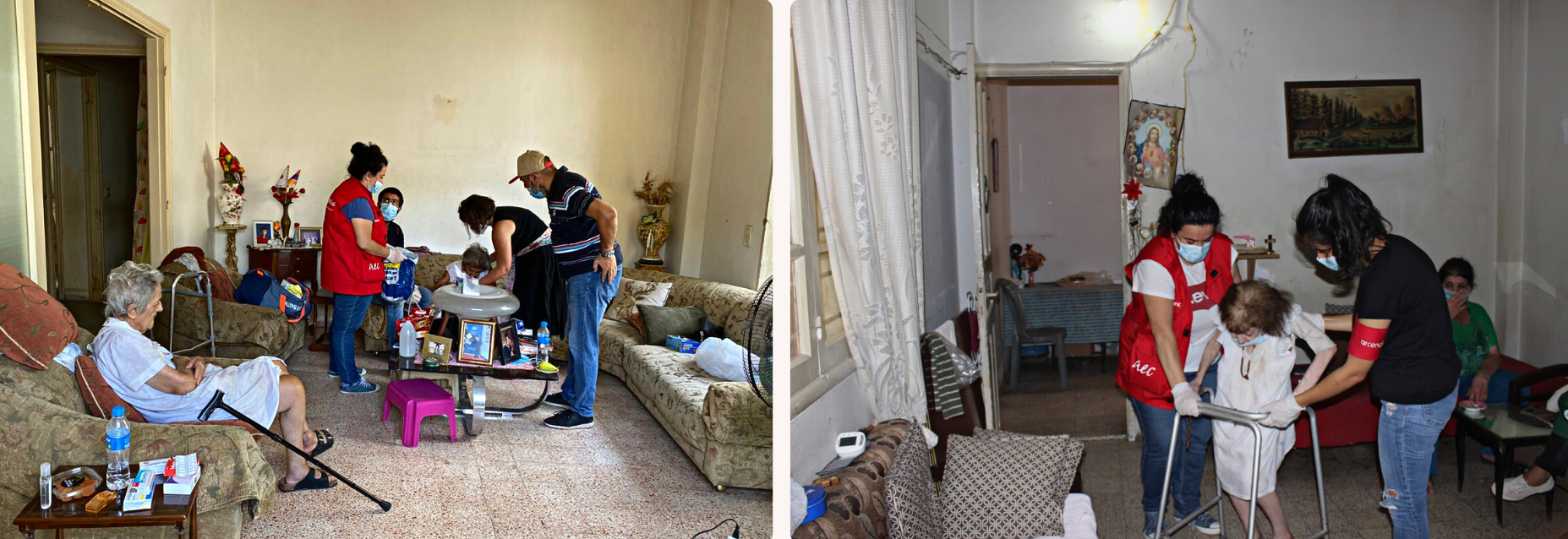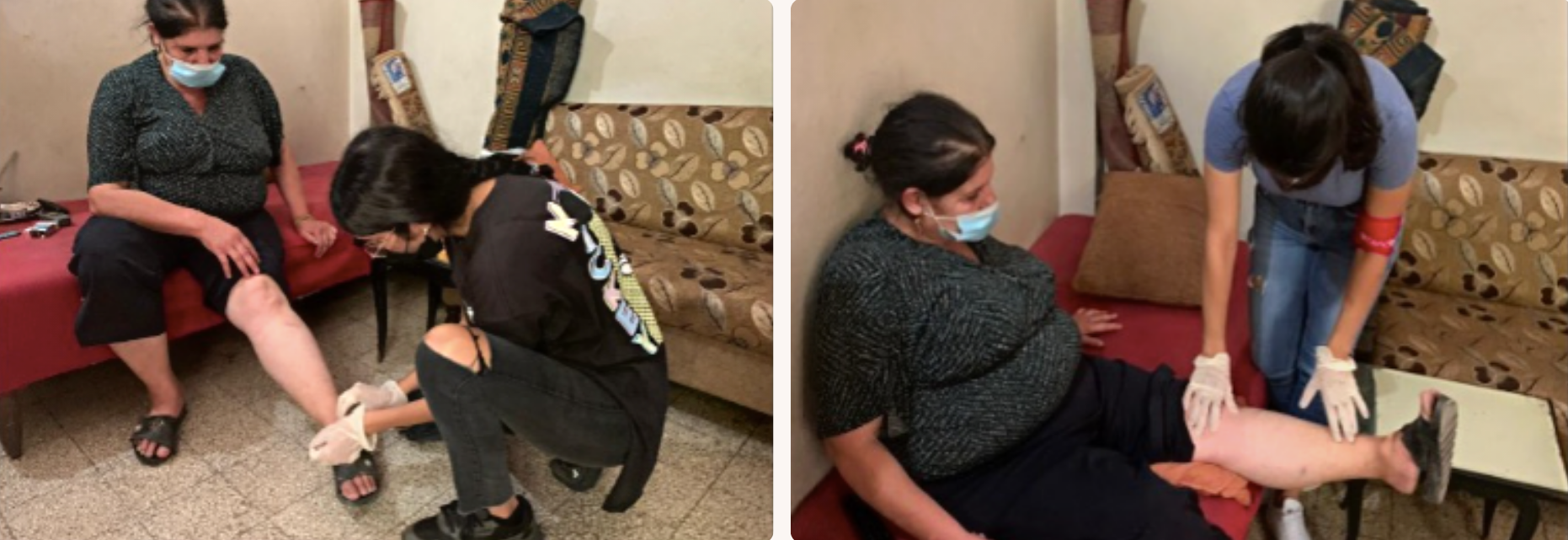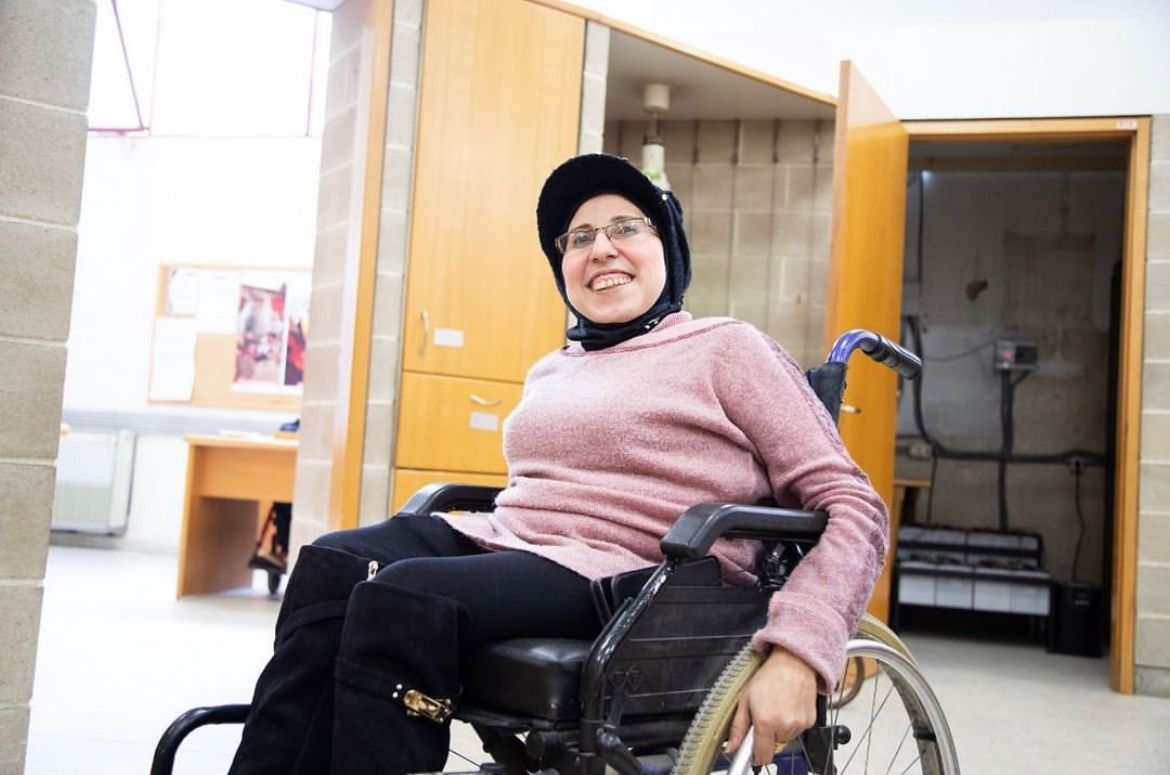Burcu Mavis, Research and Data Analyst
10,000 people with disabilities receive assistive devices
It was August 4, 2020, when the world heard of the devastating news about the Beirut Blast. It was a massive explosion that occurred in the Port of Beirut and is regarded as to be one of the largest non-nuclear explosions ever to have been recorded.
The blast killed 218 people, injured 7,000 and left 300,000 displaced. The damage it caused to the capital and its inhabitants is inconceivable – it is estimated to be between USD$3.8 and USD$4.6 billion, and includes the destruction of 77,000 apartments.
These were the numbers we’d read about the blast, but what was under the surface and how did it affect the people of Beirut and Lebanon?
Arcenciel, a journey of 38 years
Georges Xanthopuolus is one of the many people who had to deal with the aftermath of the deadly blast. He is the head of programs in Arcenciel, the leading organization in Lebanon that works with people with disabilities. Its foundation goes back 38 years. Following the Lebanese civil war, five friends – Dr. Nabil Hokayem, Antoine Assaf, Nassib Chedid, Pierre Issa, and Johnny Stephan – with some of their friends whom were living with a disability or were victims of war, set up Arcenciel. Having experienced firsthand the effects of war, they aimed to support people living with war-related disabilities.
The small initiative, led by the band of five friends, has now grown into an organization of 600 full-time employees and 100 volunteers, of which 35% are living with disabilities or other difficulties. This large and inclusive team touches the lives of more than 60,000 people in Lebanon in areas related to health, tourism and the environment.
The blast and its impact
As Georges explains, prior to the blast, “we were already experiencing an economic crisis that had a significant impact on our country, and the blast made things even worse.” Lebanon has been facing an economic and financial crisis since October 2019, which has only worsened following the COVID-19 pandemic and the Beirut blast, so powerful that it shook the whole country. From 2019 and 2021, Lebanon's GDP per capita plummeted by 36.5%, and in July 2022, the World Bank downgraded Lebanon from its upper middle-income classification to lower middle-income (World Bank).
Following the explosion, the Lebanese government's resources, given the circumstances in the country, were insufficient to provide those impacted with access to the amenities they would require to live adequately. People, living close to the port, were most impacted by the blast, and the elderly and those with disabilities faced the greatest hardships.
Undoubtedly, in this situation Arcenciel played a crucial role in supporting the blast victims. People needed all sorts of things: food, housing, furniture, and medical help. “We had to respond quickly to the emergency needs. We gave people whatever we had on our hands. However, we were short on wheelchairs, walkers, and other items that persons with disabilities needed,” said Georges. They wanted to reach as many people with disabilities as possible, thus they looked for funding opportunities and ways to diversify their financial means.
Road to success
One of the most significant alternative finance instruments used to diversify the sources of funding for businesses and individuals alike is crowdfunding. Arcenciel joined the Tadamon Crowdfunding Academy in 2021 to create and implement a crowdfunding campaign that addresses the urgent need for assistive devices such as walkers and wheelchairs. The campaign’s goal was to support the thousands of people with disabilities in need of such devices, including those that had lost their assistive equipment or developed a disability as a result of the blast.
This profoundly impactful campaign gained the attention it deserved shortly after its launch. First, it received USD$336,000 from the Building an Inclusive and Accessible Lebanon Initiative, developed in collaboration with UNDP Lebanon and the United Nations Economic and Social Commission for Western Asia.
The initiative’s campaign video
Secondly, the organization managed to collect USD$21,500 online from individual donors. Thirdly, the Agence Française de Développement, a French agency that finances the public sector and nonprofits, as well as research and education in sustainable development, provided USD$500,000 for the project. In total, Arcenciel managed to collect USD$857,000 and provided assistive devices for 9,910 people affected by the blast.
A new chance
But Arcenciel’s campaign extended far beyond simply collecting funds. In one case, they supported an 81-year-old woman named Georgette, with no family, and her caregiver Aicha.
Georgette lived alone in Rmeil, one of the neighborhoods of Beirut, located only 2.8 km away from Beirut’s port. She used to make her living as a tailor, until her old age and deteriorating health prevented her from continuing to work. Since then, she hasn't been able to walk by herself, and requires assistance with daily tasks. Her caretaker, Aicha, was Georgette's outstretched legs and hands.

Support provided by Arcenciel to Georgette
Georgette’s house was severely damaged by the Beirut explosion, leaving both her and Aicha on the street. What’s worse, Aicha was injured and could no longer assist Georgette. Arcenciel came to Georgette and Aicha's aid, providing physiotherapy sessions to both of them based on their needs, which aided in their rapid recovery. In addition to the recovery process, they provided a water mattress to prevent the appearance of bedsores and a walker to help Georgette walk without assistance. Their support for Georgette and Aicha did not end there – they continued to provide medical check-ups and a daily meal to both of them for one month as part of Arcenciel’s social program.

Support provided by Arcenciel to Aicha
Through crowdfunding Arcenciel was able to provide a vital lifeline for people like Georgette and Aicha following the Beirut explosion, while raising awareness about their mission in support of people with disabilities across Lebanon. Support them today: arcenciel.org/donate/!
Learn more about Arcenciel's work.
